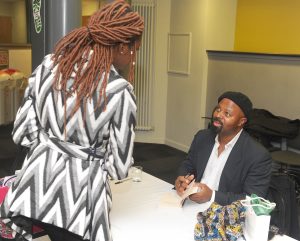Since the announcement in October that Paul Beatty had won the Man Booker prize 2016 there has been an influx of support from across the country. After all, he is the first American to win the award and the recognition ‘The Sellout’ has received is more than well deserved. However, in the last week several UK authors have voiced their concern over the eligibility of American authors to win the award.
The award was opened to authors across the world in September 2013 on the condition that their work is in English and is published in the UK. However, Man Booker prize winner 2011 Julian Barnes led the attack on the award claiming authors in the UK, Ireland and Commonwealth had lost a ‘valuable opportunity to make a name for themselves’ despite this being the first year someone out with the UK has won the award.
There has been a great deal of support for Barnes with fellow authors uniting in protest. There have been claims that there are enough literary awards across the pond and that there are by far more opportunities for creative writing in the US than in the UK. Also, the prestigious award, which was once exclusive to only the British, was one of few that remained without competition from American authors. Now there is a strong feeling amongst authors that it is now more difficult than ever to gain the recognition necessary to win any award.
So UK authors are feeling hard done by but is there enough reason to react this way?
In a way, yes. There are too few literary awards in the UK and now authors are dealing with more competition in winning one of the most prestigious awards by facing authors who have perhaps had more guidance or development in writing a novel. However, the award is specifically for English language works which has been published by a UK publisher – not a US extension or parent company – so as long as the book follows these specifications then why shouldn’t it be eligible?
One example is if an American born author spent half of their life in the UK and wrote a book which was published by Black and White Publishing – should they be exempt from the award simply because they were born in America?
It may seem pedantic but if the book is published by a UK publisher and is in English then, in my opinion, there shouldn’t be any complaints. We’re at a point in publishing where at least once a day someone will say ‘print is dead’ so perhaps this is an opportunity to create more competition and demand UK authors to write more and better.
In the three years since the rule changed this is the first year someone outside the UK has won the award and the long list included six British authors so there is still recognition for UK authors. Regardless of the outcome of the outcry from authors perhaps this is also an opportunity to look at the number of literary awards available in the UK and build on that.
 Who would have ever thought that one of the most prestigious British book awards may be given according to one, simple criteria: “the best novel in the opinion of the judges”? The uniqueness of the Man Booker Prize lies also in the jury which is not (as someone would predict) contained only of literary critics or professors of literature – but also readers reflecting multiple backgrounds: politicians, actors or journalists. Honesty and simplicity that is expressed in this prize seem convincing even for me, a rebel always skeptical to the tastes of highly regarded authorities. And it must mean something.
Who would have ever thought that one of the most prestigious British book awards may be given according to one, simple criteria: “the best novel in the opinion of the judges”? The uniqueness of the Man Booker Prize lies also in the jury which is not (as someone would predict) contained only of literary critics or professors of literature – but also readers reflecting multiple backgrounds: politicians, actors or journalists. Honesty and simplicity that is expressed in this prize seem convincing even for me, a rebel always skeptical to the tastes of highly regarded authorities. And it must mean something.


